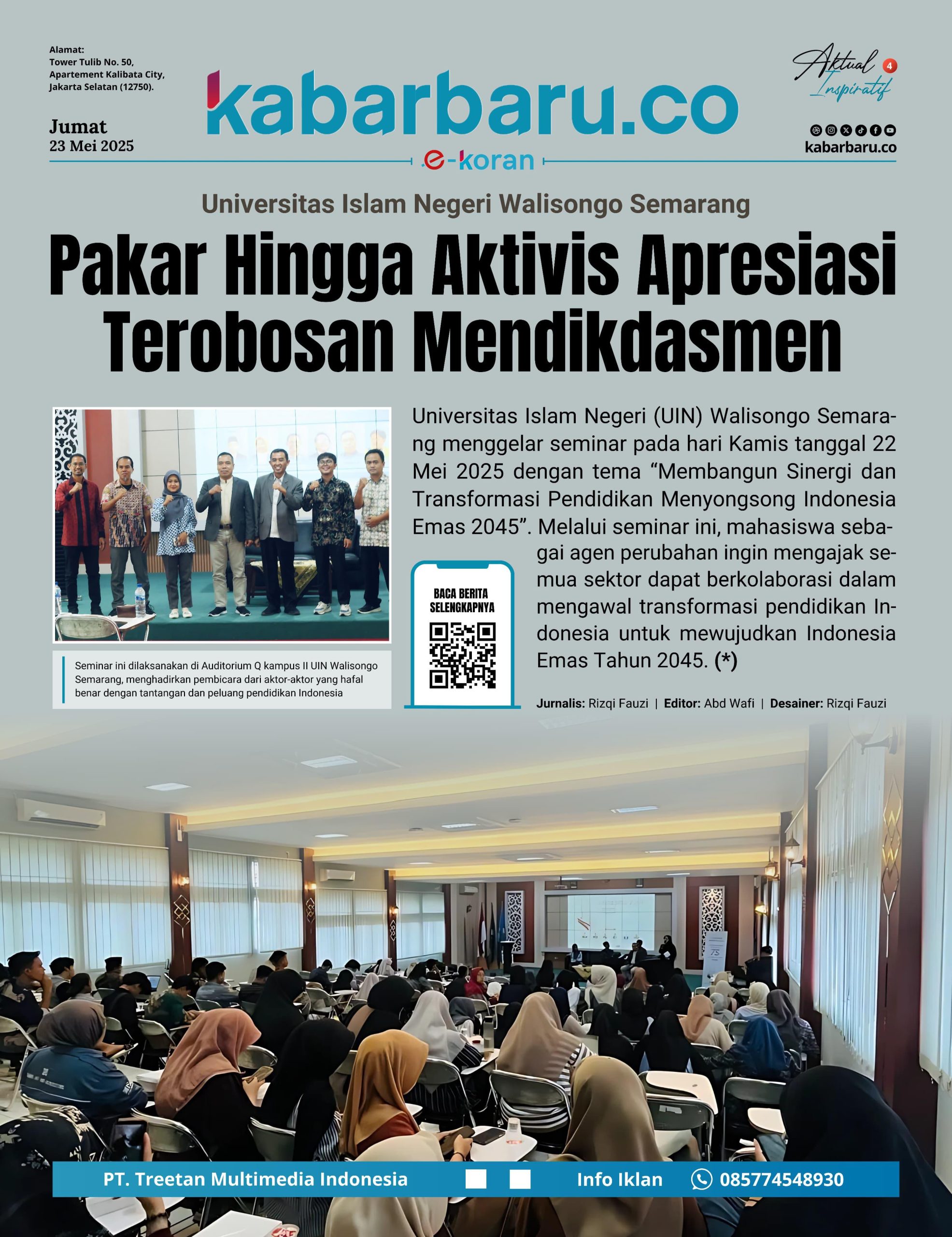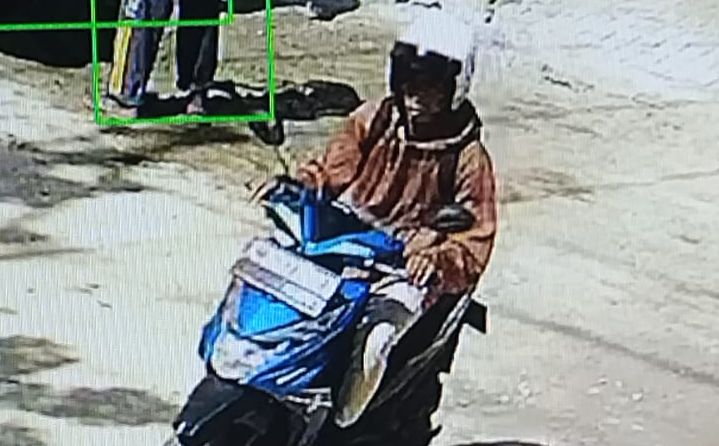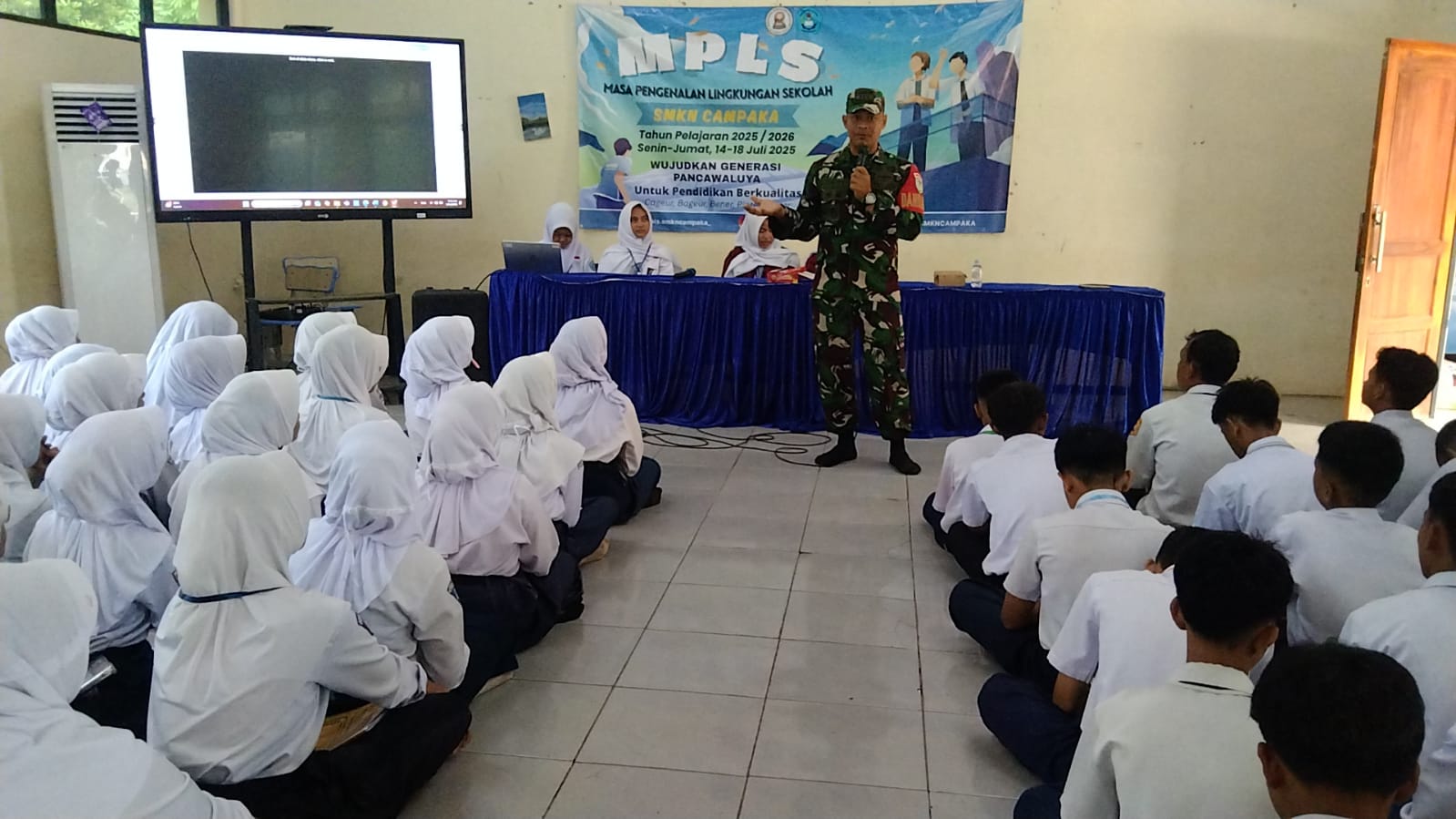Nusantara PMM Module, An Effort for Harmony

Jurnalis: Hanum Aprilia
Kabar Baru, Jakarta – In the momentum of Teacher’s Day three years ago, Minister of Education and Culture Nadiem Makarim delivered a short, but very reflective speech. A speech that is packaged and designed in order to raise awareness of education people, about the idea that he is working on together, namely Merdeka Learning.
Nadiem said that the task of a teacher is the noblest and the most difficult task. He said;
“Indonesian teacher. You are assigned to shape the future of the nation, but you are often given rules rather than help.
You want to help students who are lagging behind in class, but you are wasting your time on administrative tasks with no apparent benefit.
You know very well that a child’s potential cannot be measured by test results, but he is forced to pursue numbers because he is urged by various stakeholders.
You want to take students outside of the classroom, but the hectic curriculum closes the door on adventure. You know every child has different needs, but uniformity trumps diversity.”
The speech above describes a dilemmatic situation. On the one hand, the Minister wants education to fly high in the air, while the legacy of the hereditary system is still a stumbling block or obstacle to progress. He dreams of progressive education, while the reality in general shows stagnation. Reality which in its journey became the starting point of a brilliant idea called “Learning Independence”. Because independence is the essence and essence.
A famous and legendary poet from Lebanon, Khalil Gibran, once composed a poem that intersects about this. The poem he titled is in the English version; “Your Children are not Your Children”. This means that even in the biological relationship between parents and children, independence is still a human right. Children for Khalil Gibran are arrows that will reach their own destination.
Therefore, in the preamble of the 1945 Constitution, it is clearly stated that Independence is the right of all nations and therefore colonialism in the world must be abolished because it is not in accordance with the principles of humanity and justice. Because of the vital importance of the word independence, the struggle for it in the history of our nation requires a span of no less than three and a half centuries.
*Three Big Sins in Education*
In an effort to identify the chronic problems in our education, Mas Minister Nadiem Makarim and his stakeholders have finally come to a conclusion about what is actually an obstacle in our education. Summarized in terms of the three great sins of education; First Intolerance, Second Sexual Violence, and Third Bullying.
The three major sins above, are found everywhere with various variants of cases. Hurt humanity, snatch freedom. In a very diverse/heterogeneous reality, what happens is intolerance. In the reality of an increasingly modern world, sexual violence is perpetual. Likewise, bullying, which seems to have become a true tradition, has been passed down from generation to generation. Even though the world has moved very forward in tandem with the disruption of digital technology.
It means, the Freedom of Learning that Nadiem Makarim dreams of is a long, steep, and winding route. But even so, the screen has expanded. Merdeka Learning has manifested itself in a number of derivative policies, including the Merdeka Campus in which there is an Independent Student Exchange which is now one of the most popular programs for students at the student level.
The above program in its journey is quite evocative, inspiring, and moves many elements to become part of the history of change. Our education seems to be more ready to pick up on the signs of an increasingly rapid and disruptive change. Because in addition to increasingly modern devices, the mentality to think ahead and go global is also being prepared.
*PMM Nusantara Module*
In an effort to campaign for the three social sins in education, of which the first point is intolerance, the Nusantara Module is a derivative program of the Ministry of Education and Culture’s PMM which is oriented towards the cultivation of the understanding of diversity. The Nusantara module provides reflection and inspiration for students to live side by side with others from diverse backgrounds. It is this social encounter that will lead to a holistic understanding of tolerance and mutual respect.
This is because the activities in the Nusantara Module will introduce the wealth of Nusatara originating from various groups, ethnicities, races, religions, and beliefs. With such activities, the educational process becomes more colorful and dynamic. It is no longer the monotony of one-way activities from teacher to student or lecturer to student. This is because the modul nusantara activities, if classified, will be divided into four types; First Diversity, second inspiration, third reflection, and fourth social contribution.
For example, the activities of the aceh cultural encounter in yogyakarta, a visit to the skolastika sc Yogyakarta, and the activities of friends from IKIP Budi Utomo who helped flood victims in Malang.
Finally, under the concoction of Nadiem Makarim, education that was originally rigid and full of rules has now undergone many transformations, from what was originally only top-down and tended to be doctrinaire, to become participatory in nature. As the message from Ki Hadjar Dewantara:
“Children live and grow according to their own nature. Educators can only care for and guide the growth of that nature.”
(By: Sinta Lestari, M.Si, Alumni of Master of Communication Program, University of Indonesia)


 Beritabaru.co
Beritabaru.co Serikatnews.com
Serikatnews.com Suaratime.com
Suaratime.com Kabartren.com
Kabartren.com Sabdaguru.com
Sabdaguru.com Dailynusantara.com
Dailynusantara.com Portaldemokrasi.com
Portaldemokrasi.com Seedbacklink.com
Seedbacklink.com

























